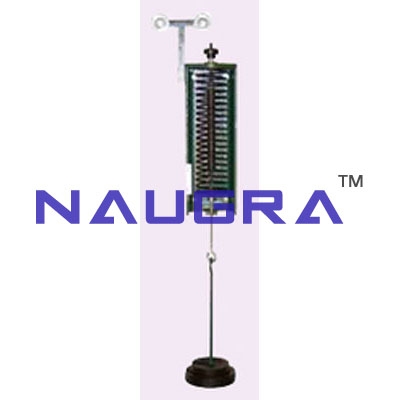- Civil Lab Mechanical Lab Engineering Lab Equipments
- sales@didacticlabequipments.com

CAT NO: DIDACTICNLE-Export-053010
Internal Elastic Forces Apparatus- Engineering Lab Training Systems.
Features
Low cost effective teaching
Self-contained
Wall-mounted
Simulates strains for a bolt stressing
a tube
Determination of stiffness of tension and compression springs
3 year warranty
Range of Experiments
To determine the stiffness of springs in tension and compression
To
investigate a self-straining system similar to a bolt in a tube. In
particular to measure the reduction in length of the "tube", and the
forces in the springs
To measure the increase in length and forces in the system due to applying an external tensile load
Description
The
apparatus is a self straining system analogous to a bolt stressing a
tube, enabling the final overall deflection of the system to be
determined. It consists of a frame in which there are two springs. A
tension spring with means of adjusting its length has a disc at its
lower end. Between this disc and the top of the frame is fitted a
compression spring. A weight hanger attached to the disc enables the two
springs to be loaded. The stiffness of the two springs is different so
that an overall deflection is induced.
The two springs can be
installed separately in the frame so that the stiffness of each can be
determined. In the case of the compression spring, it is necessary to
apply loads through a cord and pulley arrangement. A graduated scale
alongside the disc shows the deflection of the spring(s). Excellent
results are achieved due to the low friction of the equipment.
This
equipment is part of a range designed to both demonstrate and
experimentally confirm basic engineering principles. Great care has been
given to each item so as to provide wide experimental scope without
unduly complicating or compromising the design. Each piece of apparatus
is self-contained and compact. Setting up time is minimal, and all
measurements are made with the simplest possible instrumentation, so
that the student involvement is purely with the engineering principles
being taught. A complete instruction manual is provided describing the
apparatus, its application, experimental procedure and typical test
results.
